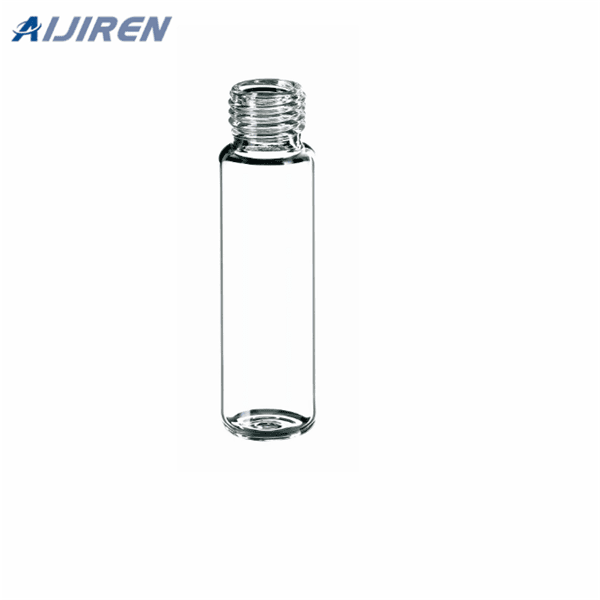
The Thermo ScientificTM National AVCSTM (Advanced Vial Closure System) 9 mm screw thread closure is our most recent product innovation and is designed to enhance your work flow by improving how samples are handled. Featuring AVCS technology, these closures will instantly enhance your laboratory’s performance.
.jpg)
Crimp Seal Reference: Optimal Crimp. Sample Evaporation (g) 0.020 0.015 0.010 0.005 0 0.025. Optimal Tightening Attempt, 9mm Closure Source C. 0.040 0.030 0.020 0.010 0 0.050. Optimal Tightening Attempt, 9mm Closure Source D. Sample Evaporation (g) 0.020 0.015 0.010 0.005 0 0.025. Normal Tightening, SureStop Vial/AVCS Closure. Sample
.jpg)
In this paper, we demonstrated a comprehensive approach utilizing real CCS component dimensional data as a statistical input for CCS dimension stack-up calculations to calculate the actual CCS end performance window and the CCS's quantitative failure risk to determine the CCS's optimal sealing performance and visual acceptance under different
.jpg)
Optimal Tightening Attempt, 9mm Closure Source D. Sample Evaporation (g) 0.020 0.015 0.010 0.005 0 0.025. Normal Tightening, SureStop Vial/AVCS Closure. Sample Evaporation (g) Sample Number 0.020 0.015 0.010 0.005 0.025. Crimp Seal Reference, Overcrimped. Sample Evaporation (g) 0.040 0.030 0.020 0.010 0 0.050 0.060. Overtightened 9mm Closure
.jpg)
Crimp Seal Reference: Optimal Crimp. Sample Evaporation (g) 0.020 0.015 0.010 0.005 0 0.025. Optimal Tightening Attempt, 9mm Closure Source C. 0.040 0.030 0.020 0.010 0 0.050. Optimal Tightening Attempt, 9mm Closure Source D. Sample Evaporation (g) 0.020 0.015 0.010 0.005 0 0.025. Normal Tightening, SureStop Vial/AVCS Closure. Sample
.jpg)
performance. From improved autosampler compatibility, to elimination of inconsistent vials sealing that threatens to destroy sample integrity, to increased flexibility and handling with vial/ septa combinations, the 9 mm closure will drive your laboratory to even greater performance levels. At the core of the new Chromacol series of closures is the
.jpg)
Mar 23, 2020 · The CCS sealing performance inherently will change while undergoing both time and temperature transitions. Exposure to lower temperature has a significant impact on CCS sealing performance, in particular, its container closure integrity (CCI) results. This is critical, as good CCI results are needed to maintain product sterility and stability.
.png)
Autosampler Vials, Caps and Closures Thermo Scientific™ 8mm Non-Assembled Clear Screw Thread Autosampler Vial Kits Save time and reduce the risk of contamination using this convenience kit.
.jpg)
Crimp Seal Reference: Optimal Crimp. Sample Evaporation (g) 0.020 0.015 0.010 0.005 0 0.025. Optimal Tightening Attempt, 9mm Closure Source C. 0.040 0.030 0.020 0.010 0 0.050. Optimal Tightening Attempt, 9mm Closure Source D. Sample Evaporation (g) 0.020 0.015 0.010 0.005 0 0.025. Normal Tightening, SureStop Vial/AVCS Closure. Sample
.png)
Residual Seal Force (RSF) is an evaluation of the quality of this seal. The glass vials subjected to RSF evaluation are used exclusively within the healthcare industry. A perfect example of the importance of RSF testing is the COVID-19 vaccine: some of the vaccines need to be stored at extremely cold temperatures in order to remain effective.
.jpg)
Use these dependable vials for small sample collection, analysis or storage. Fisherbrand™ Type III Soda Lime Glass Specimen Vials are ideal for a range of diagnostic, pharmaceutical and healthcare applications. 7. Fisherbrand™ Clear Moulded Glass Vials, with Fitted Screw Caps. Suitable for the storage of pathology media.
.png)
when sealing a vial. Analytical results are improved as a result of the elimination of evaporation differences between samples. PAGE 2-005 Virtuoso Vial Identification System A fast sample identity and security system that provides reliable and accurate customized sample information printed directly onto a vial. Thermo Scientific PAGE 2-007
.jpg)
The vial data shown here was intentionally generated to showcase how different the underlying distributions can be despite displaying similar summary statistics. If this data were representative of four different vial vendors supplying the same ISO specification vial, substituting each into the same process could lead to significant problems.
.jpg)
Sep 3, 2021 · To ensure patient safety and meet regulatory requirements for container closure system, a number of factors must be addressed, including risks associated with gas and moisture ingress, changes in vacuum pressure, leakage, capping, sealing, visual inspection acceptance, and temperature cycling.
.png)
Historically, probabilistic container closure integrity test methods such as water bath, dye, and microbial ingress tests have been used to determine package quality. These tests are limited in their effectiveness and reliability for several reasons. Chief among them are the subjectivity of the results, the lack of standardization, and the lack